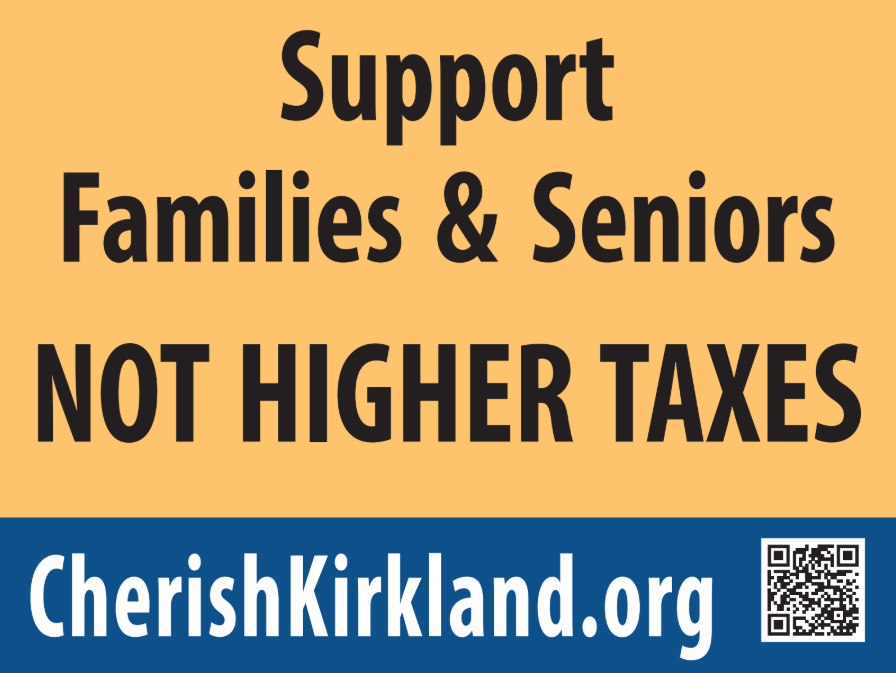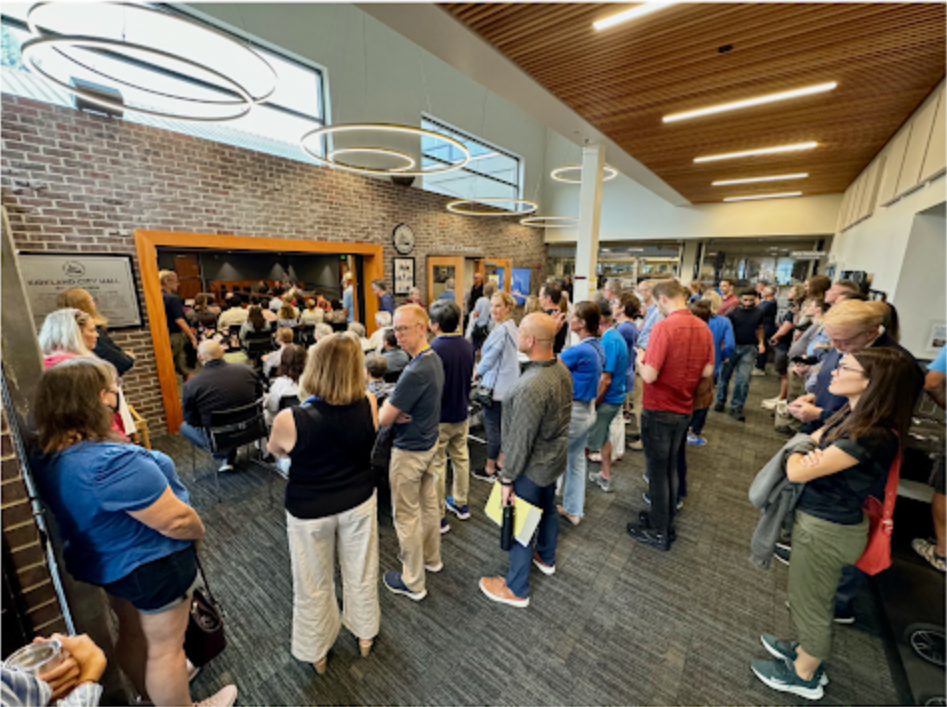What We Might Be Missing About "Boomers" and Housing in Kirkland
It’s not the “boomers” fault.
Before we assume Baby Boomers are “hoarding homes,” it’s worth understanding the economic headwinds they’ve faced—from inflation and recessions to job instability and shrinking pensions. In Kirkland, rising housing costs and shifting tax burdens affect older residents too—many of whom want to stay in the community they’ve built. This post takes a closer look at the realities behind the rhetoric, and why building empathy across generations is key to solving our affordability crisis.
In today’s housing conversation, it's become increasingly common to hear frustration aimed at older homeowners, particularly Baby Boomers. The narrative goes something like this: Boomers bought their homes when prices were low, they've watched their property values skyrocket, and now they're "hoarding housing" that younger generations can't access.
But what if this storyline misses a crucial part of the economic picture?
Understanding the financial realities of those born between 1950 and 1960 helps illuminate a different side of the housing story. It doesn't excuse inequities or dismiss the challenges faced by younger residents, but it does provide important context that can lead to better solutions. Because a city built on assumptions rather than understanding is one that risks turning neighbors into adversaries.
The Real Economic Conditions This Generation Faced
The Baby Boomer generation spans from 1946 to 1964, but those born between 1950 and 1960 often faced a very different financial path than is widely assumed:
Stagnant wages: From the 1970s through the early 1980s, real wage growth was sluggish. Despite working full-time jobs, many struggled to build savings or invest.
High inflation and interest rates: In the late 1970s and early 1980s, inflation soared. By 1981, mortgage interest rates peaked at over 18%, making homeownership a significant burden even when homes were less expensive on paper.
Recessions and job insecurity: This generation entered the workforce during multiple economic downturns, including the 1973 oil crisis, the 1980 and 1982 recessions, and the 1990 recession. Jobs were lost. Savings were depleted.
Disappearing pensions: Many were promised stable retirement through pensions, only to see those benefits eliminated or reduced in the shift to 401(k)s and individual savings plans, transferring all the retirement risk to them.
Why This Matters in Kirkland:
Kirkland in 1970 looked nothing like Kirkland today. Homes were modest, infrastructure was limited, and for many, buying a home meant years of financial sacrifice. Now, as property values have skyrocketed, some seniors are house-rich but cash-poor. Their fixed incomes don't stretch to cover rising taxes, healthcare costs, or in-home assistance.
And while it’s true that some seniors in Kirkland are wealthy, it's far from the full story. Many live alone. Many have no family nearby. And despite owning homes, many feel increasingly isolated, anxious about aging in place, and unsure whether Kirkland still has room for them.
Policy Tradeoffs We Must Understand:
Programs like Kirkland’s Multifamily Tax Exemption (MFTE) shift property tax burdens away from large-scale developers and onto the remaining tax base, which includes many seniors. That means older homeowners on fixed incomes are helping subsidize projects they may not benefit from and may not be able to afford to live near.
Meanwhile, the city has some dedicated housing options for seniors who want to downsize or seek assisted living without leaving the community they helped build. Still, the solutions are not right for everyone.
A Call for Intergenerational Awareness:
This isn’t about taking sides. It's about expanding our understanding.
If we want Kirkland to remain a place where every generation belongs, we have to start asking better questions:
What if some of the resentment we feel is based on a story we were told, not one we’ve examined?
And what if we treated housing policy not just as a numbers game, but as a way to express care for our neighbors, young and old alike?
The Future of Housing Isn’t Generational Warfare.
When we make space for each other—across age, income, and experience—we build a city that works for everyone.
Because thriving communities don’t pit neighbor against neighbor. They listen. They adapt. They include.
And they make sure that no one, at any age, has to choose between the city they love and the life they can afford.
Watch this 1985 snapshot of a slower, simpler Kirkland: https://youtu.be/O9G2M0USLq4?feature=shared&t=321
Act Now
to support Kirkland’s Seniors!
Ask for a Senior Solution
Help Kirkland Seniors with Affordable Housing
Write the City Council today and tell them think about solutions that help Seniors with more housing options to “stay in place” in their neighborhods - an idea backed by many Houghton residents and nextdoor school families (concerned about regular housing at this site adding commuter traffic).
Access suggested text and send a letter to the city council about these latest policy proposals.
Join Us
on Facebook
Join our Facebook group to stay abreast of the latest development agreements, legislation impacts, and an approachable group discussion supported by experts around such complex tax related topics like MFTEs.
Show up!
@City Hall on every other Tuesday
Help us bring the blue to City Hall! So City Council knows Kirkland voters stand behind a non-partisan elected body that knows its job is to be careful stewards of taxpayer funding - keeping Kirkland affordable and not treat existing residents like a blank check.
Kirkland City Hall - 123 5th Ave, Kirkland, WA 98033 (Directions)




